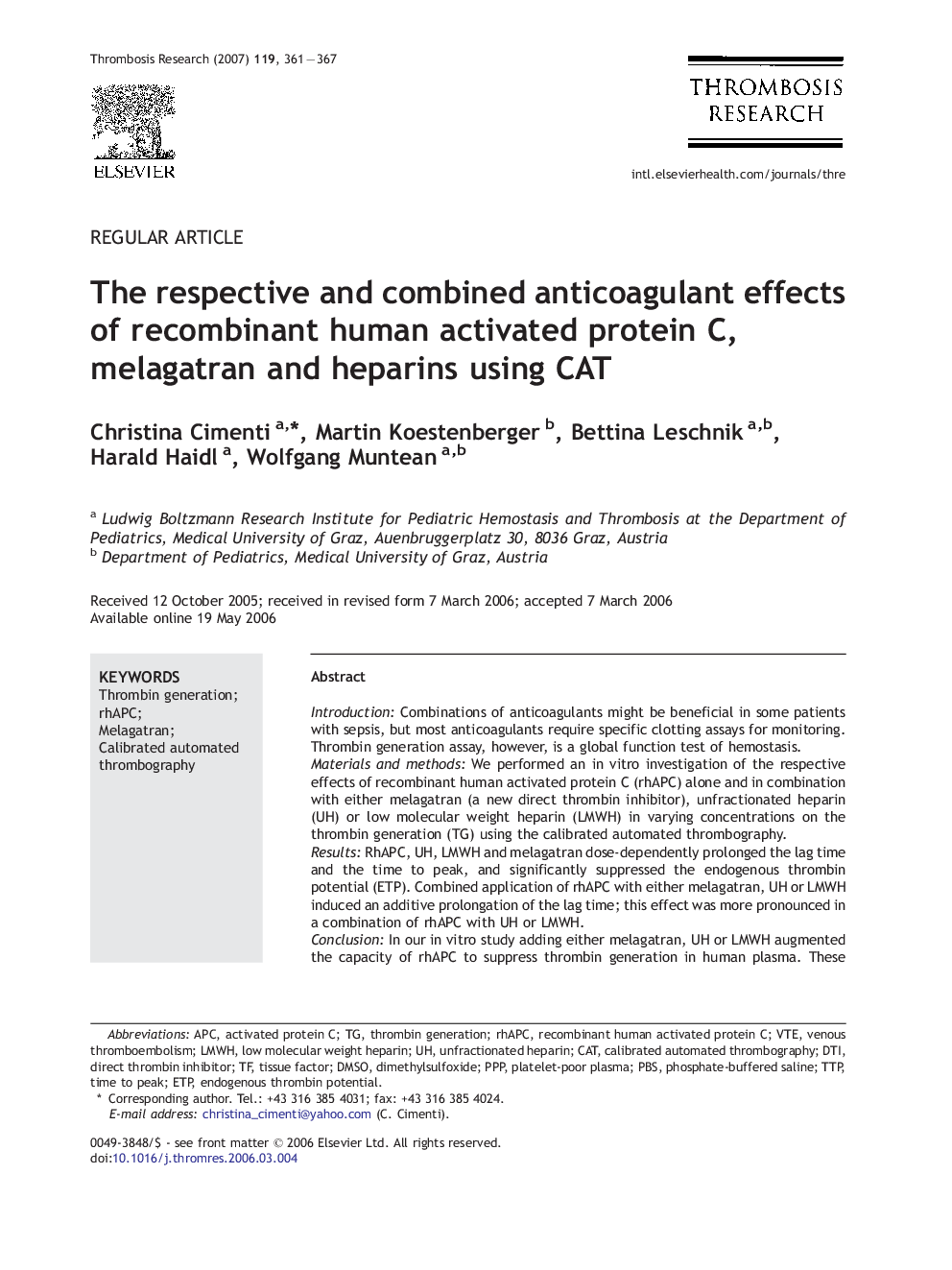| Article ID | Journal | Published Year | Pages | File Type |
|---|---|---|---|---|
| 3030197 | Thrombosis Research | 2007 | 7 Pages |
IntroductionCombinations of anticoagulants might be beneficial in some patients with sepsis, but most anticoagulants require specific clotting assays for monitoring. Thrombin generation assay, however, is a global function test of hemostasis.Materials and methodsWe performed an in vitro investigation of the respective effects of recombinant human activated protein C (rhAPC) alone and in combination with either melagatran (a new direct thrombin inhibitor), unfractionated heparin (UH) or low molecular weight heparin (LMWH) in varying concentrations on the thrombin generation (TG) using the calibrated automated thrombography.ResultsRhAPC, UH, LMWH and melagatran dose-dependently prolonged the lag time and the time to peak, and significantly suppressed the endogenous thrombin potential (ETP). Combined application of rhAPC with either melagatran, UH or LMWH induced an additive prolongation of the lag time; this effect was more pronounced in a combination of rhAPC with UH or LMWH.ConclusionIn our in vitro study adding either melagatran, UH or LMWH augmented the capacity of rhAPC to suppress thrombin generation in human plasma. These findings suggest that patients with severe sepsis might benefit from a treatment with combinations of anticoagulant agents.
